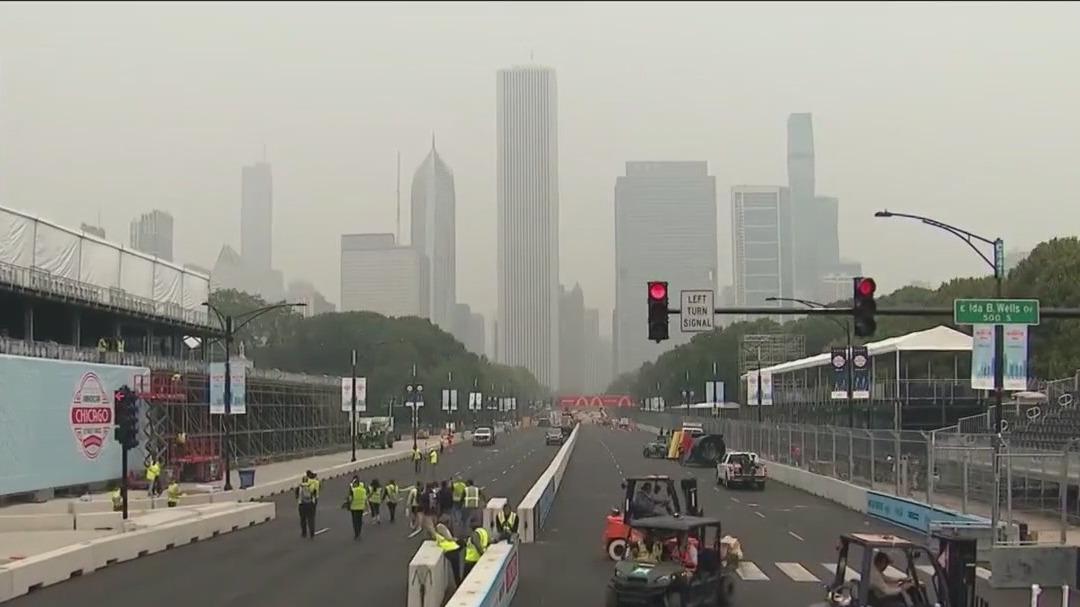Chicago’s air quality has improved, but it’s still 'unhealthy'

Pediatricians urge parents to monitor children's symptoms amid Chicago's smoke-filled skies
The Chicago Park District has brought its campers indoors because of the dangerous air quality across the city.
CHICAGO - If you stepped outside this morning and thought, it’s not quite so hazy, you might be right.
Chicago’s air quality has improved ever so slightly from "very unhealthy" to "unhealthy," according to airnow.gov, which uses the official U.S. Air Quality Index.
We’re now — just barely — in the red "unhealthy" zone — or 199 on a scale of zero to 500, with 500 being the dirtiest possible air.
Weather forecasters are predicting the air quality will gradually improve this week.
People — particularly the young, old and medically fragile — are still urged to take precautions to protect themselves.
SUBSCRIBE TO FOX 32 ON YOUTUBE
The Chicago Public Schools and Chicago Park District kept summer school and camp participants indoors, and officials encouraged the use of public transit and carpooling to minimize additional air pollution.
"Chicagoans must keep their guard up," Mayor Brandon Johnson said Wednesday, encouraging people to avoid being outdoors, to keep windows and doors closed, and to limit driving.
People with respiratory illnesses such as asthma, emphysema and chronic obstructive pulmonary disease were urged to avoid being outdoors.
"Prolonged exposure of inhaled irritants can lead to worsening lung inflammation," said Dr. Michelle Prickett, a Northwestern Medicine pulmonary and critical care specialist. "It may lead to more emergency room visits. … ICU admissions will increase in the coming days if the bad air quality continues."
City officials were making personal protective equipment available to vulnerable residents through outreach teams and agencies, urging city employees to work remotely, and monitoring 911 call volume and hospital visits.

Chicago air quality concerns linger ahead of NASCAR race
Air quality concerns have come to the forefront as Chicago prepares to host NASCAR races this weekend.
Prickett said there has been a 10% increase in patients calling the lung clinic with questions and concerns about the bad air quality the last two days.
The Illinois Environmental Protection Agency issued an Air Pollution Action Day alert for Thursday, saying the pollution levels in the Chicago area will be unhealthy for sensitive groups.
"Business and residents in the region are asked to take voluntary actions to reduce contributions to air pollution," the IEPA said.
Residents without access to ventilated and safe indoor conditions can visit public libraries, senior centers, park district facilities and the Cultural Center for respite, the mayor’s office said. Six community centers across the city are also open from 9 a.m. to 5 p.m. The locations can be found on the city’s website.

